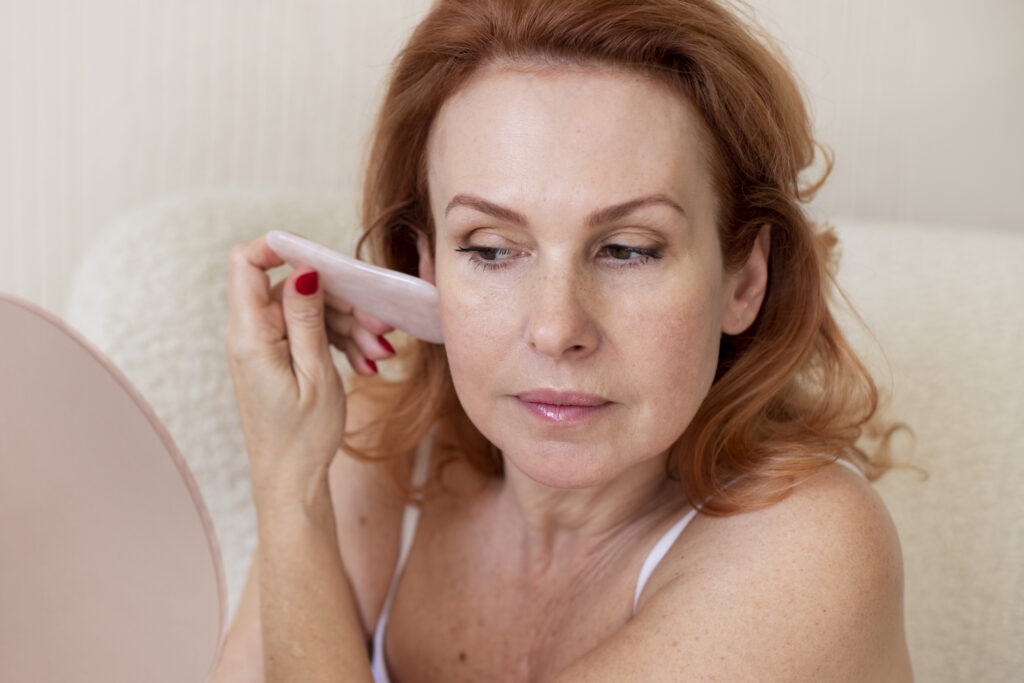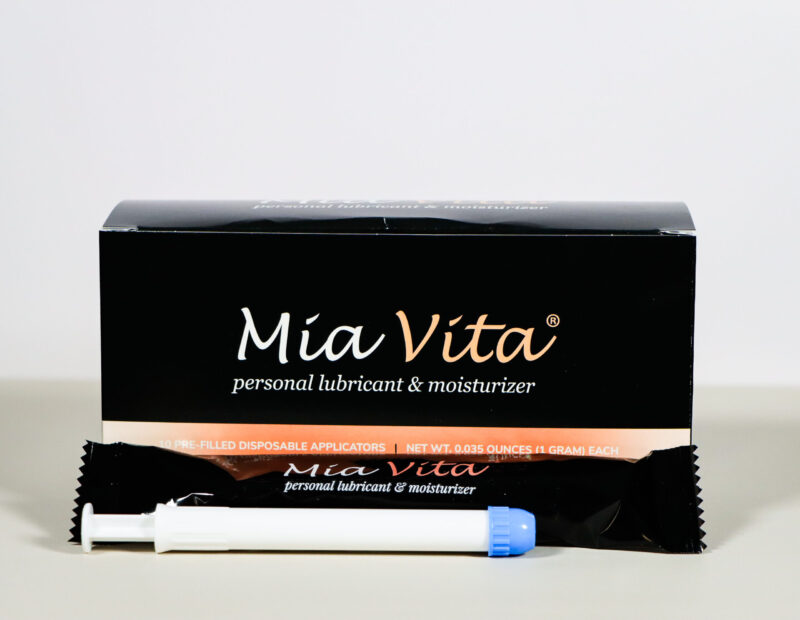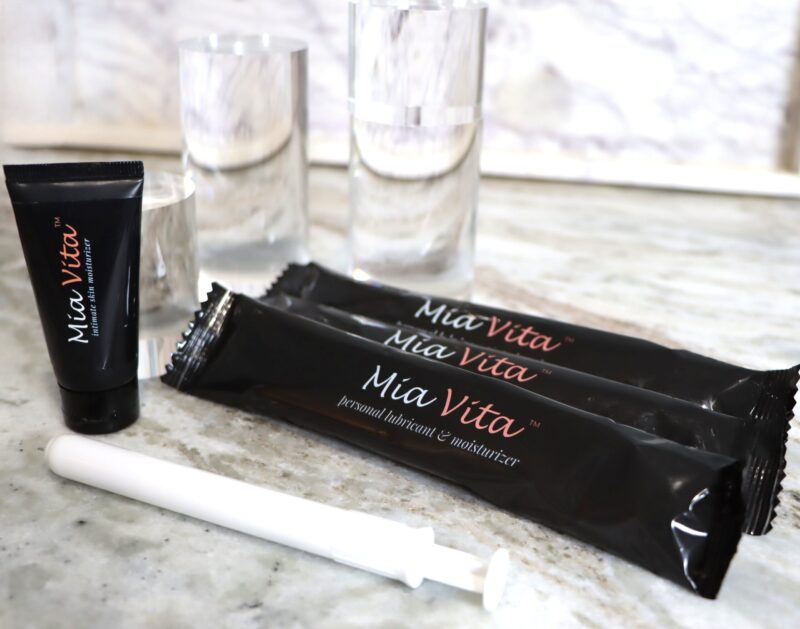Getting older comes with its own share of challenges, but there’s one challenge you thought you’d left far in the past: acne. Acne during menopause is not only a nuisance, but it’s common.
Most of us consider the days of zit-popping and Clearasil-cleansing part of our wild youth – so we might be surprised to see those painful lumps reappear. One day, our skin is clear. The next – major breakout. Suddenly, our face has more red spots than the pepperoni pizza we’d order during those youthful slumber parties.
So, how does this pimple outbreak happen? Well, contrary to popular belief, you can develop acne in your later years. In this article, we’ll delve into why this is, what causes it, and how you can get your skin back under control.
Why am I suddenly getting acne in my 40s and 50s?
As a woman in her 40s or 50s in perimenopause or menopause, you likely expected to experience some of the common symptoms of these female life phases: hot flashes, heavy bleeding, and sleep issues, to name a few. But you probably never thought about acne.
The truth is, just like these other symptoms, acne can also be a result of shifting hormone levels – notably, a decrease in estrogen and an increase in testosterone – that may result in that dreaded acne.
Let’s explore that in more detail, as well as the other common culprits of menopausal acne.
What causes acne during menopause?
Hormonal fluctuations
As mentioned above, hormonal fluctuations contribute to acne. Hormonal changes can trigger the glands in your skin to produce more oil. This excess oil production, combined with dead skin cells, can clog your pores and lead to the development of acne – particularly red, cystic acne that’s harder to control with over-the-counter medications.
Here are some additional causes of menopausal acne:
Inflammation
Hormonal imbalances can also cause an increase in inflammation within the body. Inflammation is a known contributor to acne, as it can worsen existing pimples and encourage new ones to form.
Decline in collagen production
Estrogen plays a crucial role in maintaining collagen levels, which are responsible for skin’s firmness and elasticity. As estrogen declines, so does collagen production, making the skin more prone to issues like acne scarring.
How can I treat my menopausal acne?
Adjust your skincare routine accordingly
Tailoring your skincare routine to the changing needs of your skin is essential. Opt for gentle cleansers that won’t strip the skin of its natural oils, and consider using products with ingredients like salicylic acid to target acne. However, be careful not to overdo it, as too much dryness can make the problem worse. In addition, make sure you continue to use a moisturizer – just look for one that’s non-comedogenic (won’t clog pores).
Improve your diet and lifestyle
Adopting a balanced diet rich in antioxidants, vitamins, and minerals can positively impact skin health. Staying hydrated, managing stress through activities like yoga or meditation, and getting regular exercise can also contribute to overall skin wellness.
Prescription medications
If diet and skincare adjustments aren’t proving effective in controlling your acne outbreak, you may want to consider prescription medications. Products containing retinol can be especially helpful in clearing acne (bonus – retinol is good for aging skin, too!), although they may not be appropriate for those with sensitive skin.
Your healthcare provider or a dermatologist can help you find an option that works best for your needs.
If you’re experiencing menopausal acne, try not to despair! Seeing those red bumps again can be frustrating, but treatment is available. And remember to keep caring for your aging skin – the Mia Vita Hyaluronic Acid supplement can help keep your skin soft, supple, and smooth.
FemmePharma has been helping women navigate menopause for over two decades. No matter where you are in your journey, you deserve to have knowledgeable, intimate healthcare partners to help you feel your best. Explore our other articles, podcast episodes with women’s health experts, and products to ease your transition into menopause.



